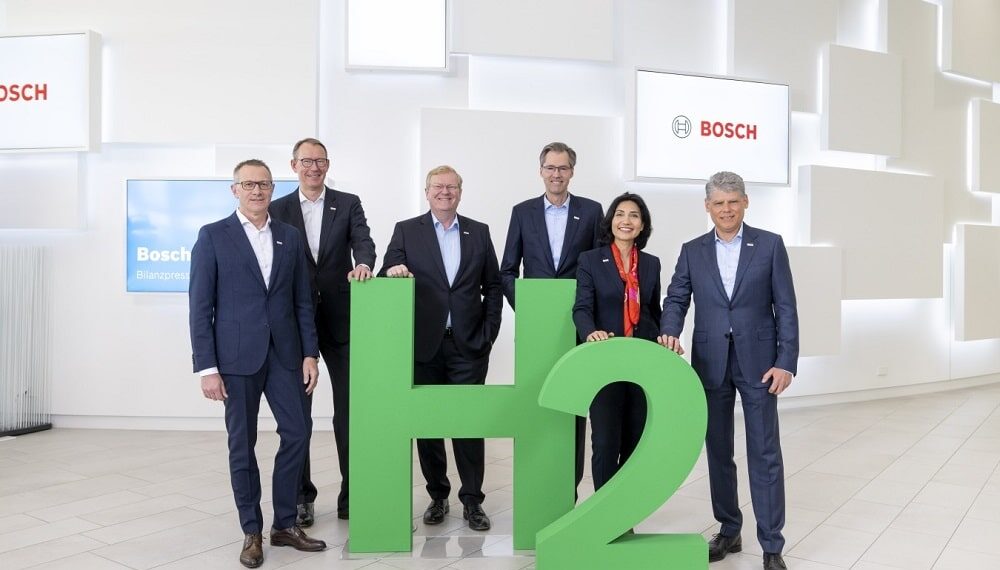Bosch, on July 13, made a significant announcement that it has commenced volume production of its fuel cell power modules, marking its entry into the hydrogen era. The company has set an ambitious target of achieving €5 billion ($5.5 billion) in hydrogen technology sales by 2030. The production of these modules will take place at the Stuttgart-Feuerbach plant, with the first customer being the US-based hydrogen truck manufacturer, Nikola Corporation. Bosch aims to generate sales of approximately €5 billion through its hydrogen technology offerings along the value chain.
Bosch expressed enthusiasm about the future of hydrogen at the Stuttgart-Feuerbach plant, the company’s oldest manufacturing facility. Bosch has promising expertise and growth prospects in the hydrogen sector. However, the production at the Feuerbach plant is just one part of the operation. Bosch’s Bamberg plant will supply fuel cell stacks, while other components like electric air compressors and recirculation blowers will come from its Homburg plant.
In June 2023, Bosch had already announced an agreement to manufacture PowerCell’s S3 fuel cell stack. The company is not limiting its fuel cell power module production to Germany; it also plans to operate a manufacturing facility in Chongqing, China, with some components sourced from its Wuxi plant. Bosch acquires the unique capability to mass-produce complex technologies like fuel-cell stacks and scale up new developments quickly.
Besides fuel cell technology, Bosch is venturing into hydrogen mobility with the development of a hydrogen internal combustion engine (ICE) for both port and direct injection systems. The company believes a hydrogen engine offers carbon neutrality and presents a fast and cost-effective path to hydrogen-based mobility. The hydrogen ICE is expected to launch in 2024 and will be particularly suitable for heavy-duty long-haul vehicles.
Bosch is also working on its electrolyser technology, having started constructing prototypes of its PEM electrolysers at the beginning of 2023. By autumn, the company aims to make 1.25MW electrolyser prototypes available for pilot applications and plans to commence volume production in 2025. The investment in hydrogen technologies is substantial, with Bosch estimating that it will have invested almost €2.5 billion ($2.7 billion) between 2021 and 2026, surpassing its initial 2021-2024 investment plan by over €1 billion ($1.1 billion). The majority of this investment is anticipated to be allocated to the hydrogen fuel cell powertrain.




































